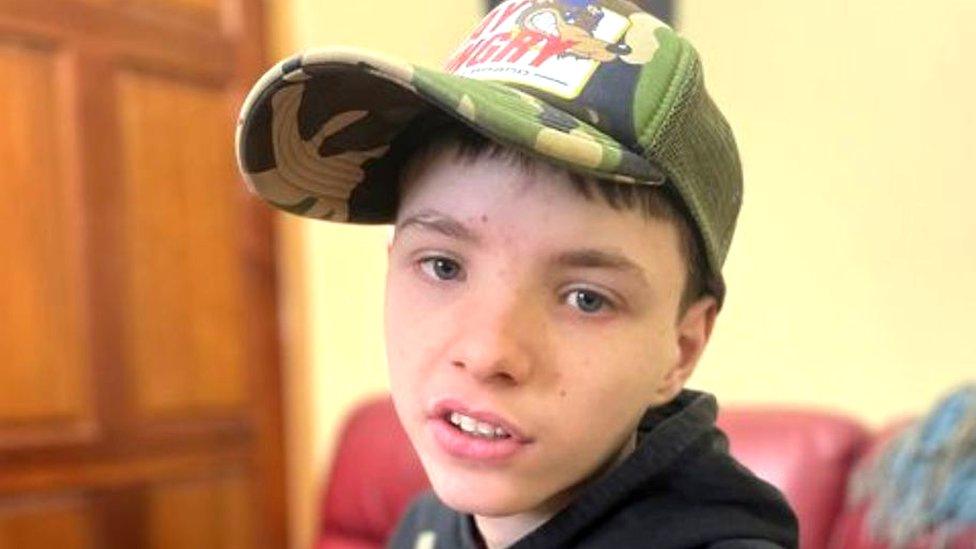How do I fill his days if he doesn't have college?
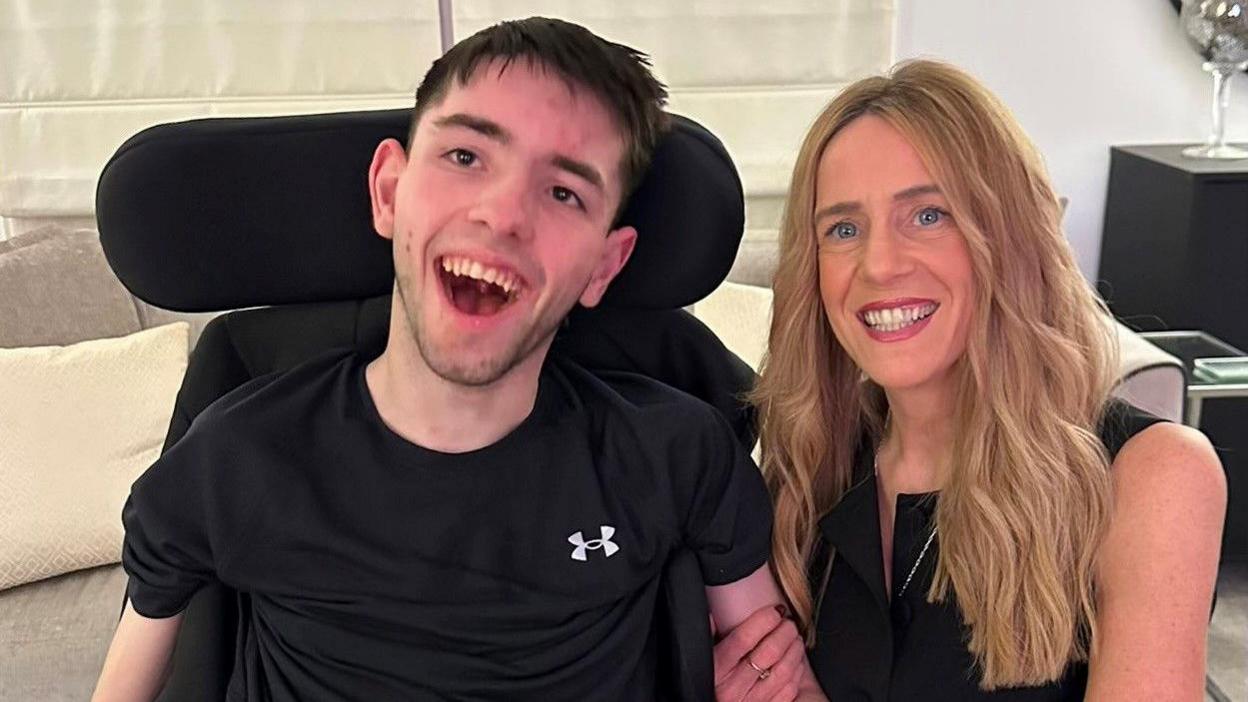
Sheryl Syme says her 18-year-old son Lewis has "flourished" at college.
- Published
Parents fear their disabled children will lose access to further education if their specialist college is shut down.
Corseford College, currently based in Inchinnan, Renfrewshire, is threatened with closure when pilot funding stops at the end of the summer.
That would see 36 young people with complex disabilities lose access to learning.
The Scottish government said it was carrying out an evaluation to "explore sustainable options".
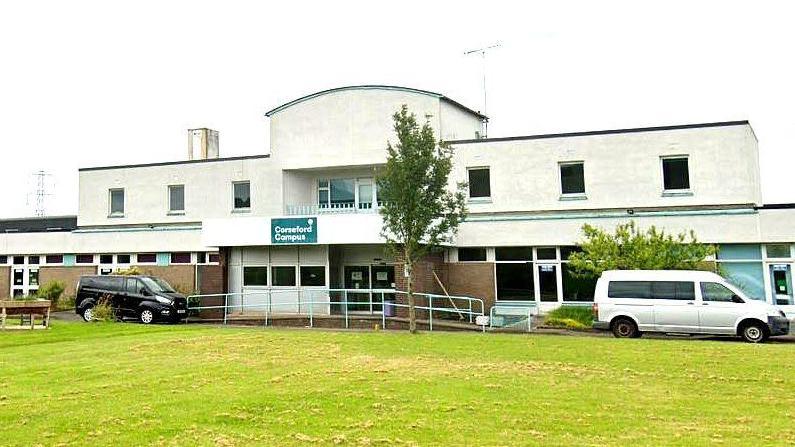
Corseford College in Johnstone is under threat of closure if it does not have its £700,000 Scottish government funding continued.
Lewis Syme was born prematurely at 28 weeks and suffered a brain haemorrhage that caused cerebral palsy and epilepsy.
His mum Sheryl said attending the college had given the 18-year-old a purpose and the family peace of mind.
She said the potential closure of Corseford College would be devastating.
Sheryl added: "Lewis has flourished there. He's happy, engaged, and part of a community.
"We're terrified of losing that. How do we fill his days?
"How do we keep him stimulated? It's stressful just thinking about it."
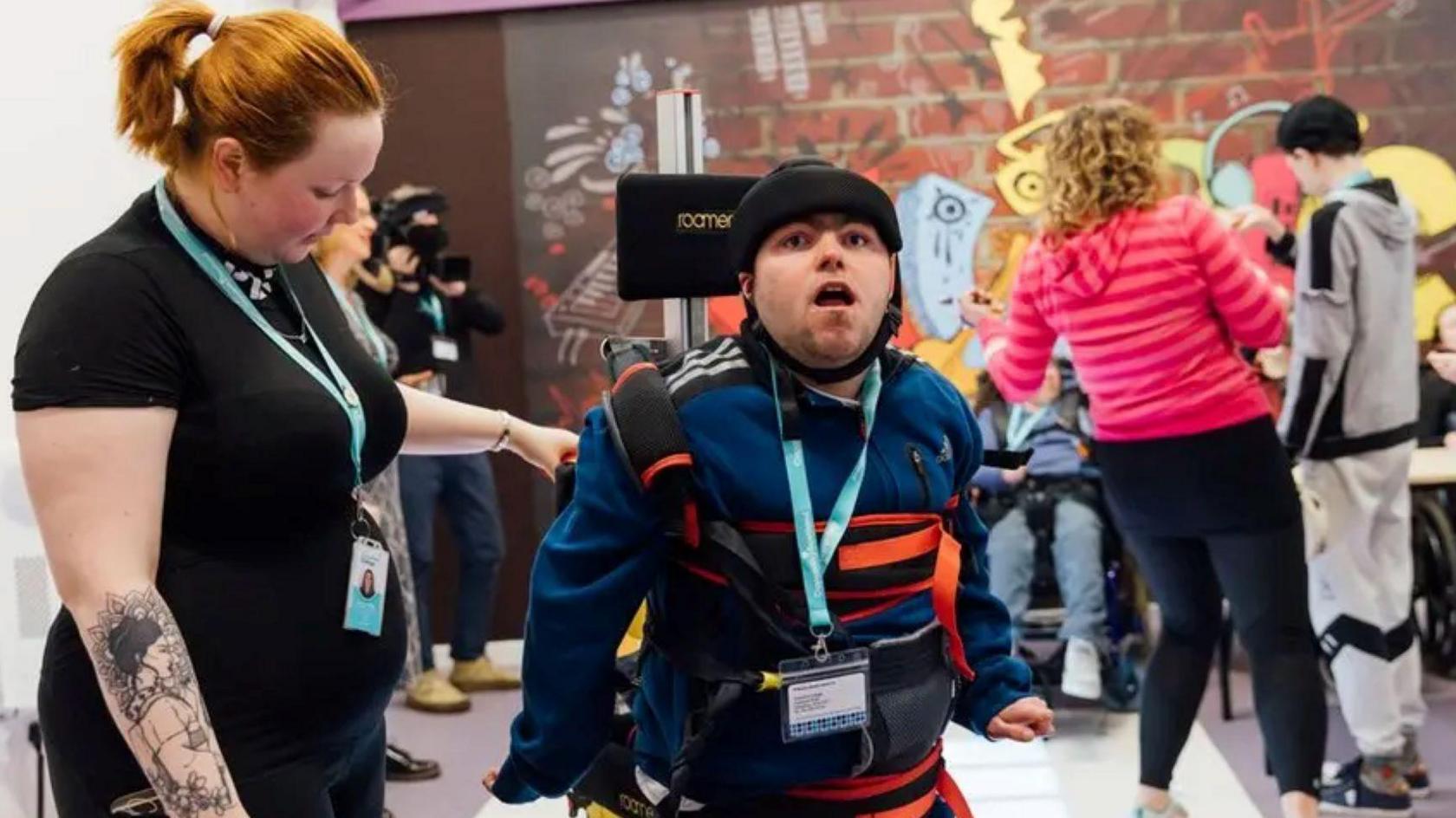
Corseford has about 36 students whose places are under threat.
After leaving school, Lewis' options were bleak.
He requires full-time care and relies on his family for everything.
Daycare facilities couldn't meet his needs, and mainstream colleges lacked the necessary support.
"Lewis isn't able to do what other 18-year-olds can, like socialising or living independently," Sheryl explains.
"Without college, his world shrinks. He'd be stuck at home with no stimulation or social opportunities."
With few tailored college courses and a reduction in adult training centres, many school leavers like Lewis face being stuck at home with no options for education or meaningful engagement.
But Corseford College, run by the charity Capability Scotland, offers bespoke education and therapies such as hydrotherapy and rebound therapy, which is the use of a trampoline for movement and exercise.
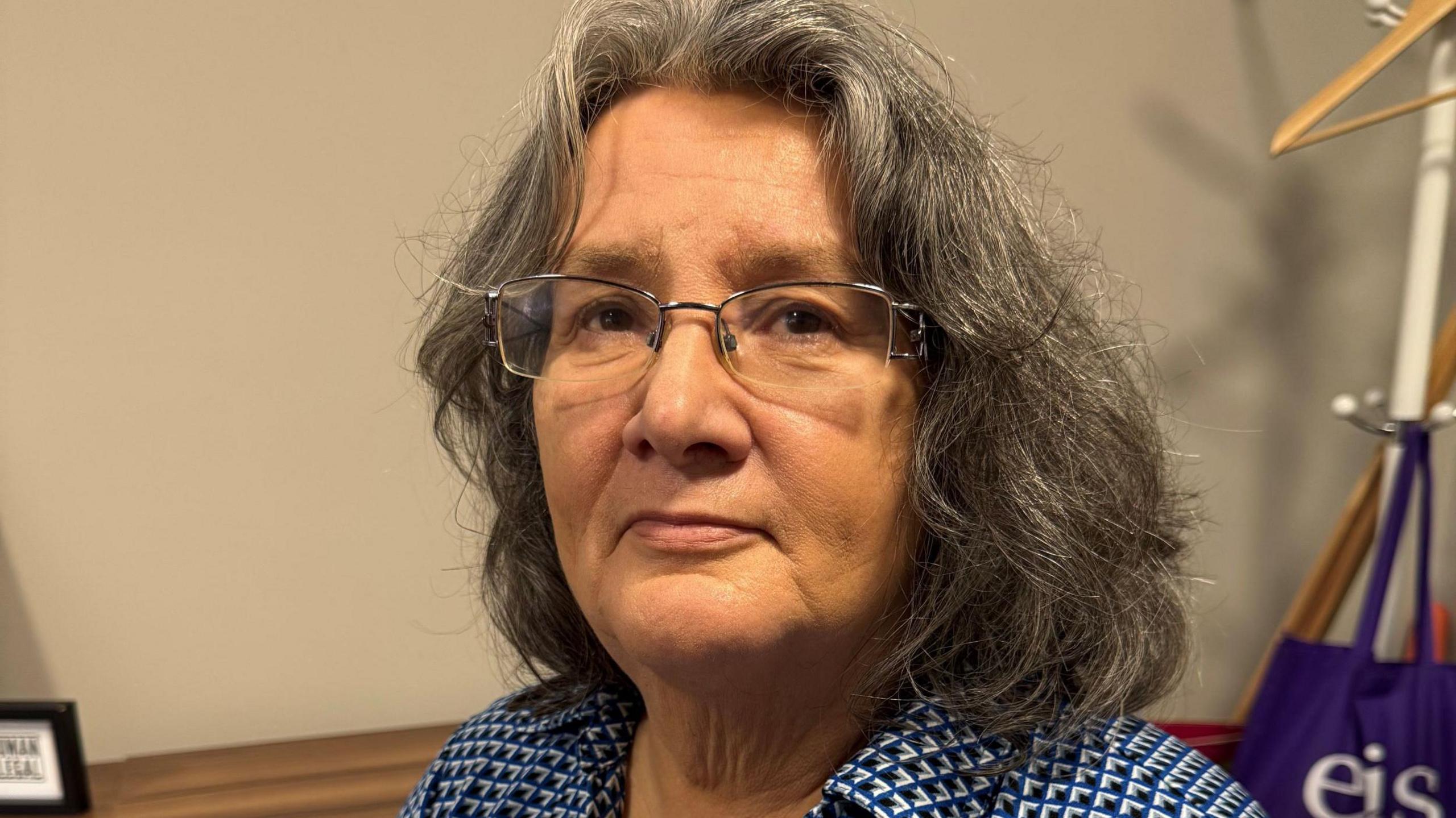
Eileen Imlah from the EIS teaching union is concerned the college closing could lead to "lost generation" of young people
The college costs £1.5m annually to run, with £700,000 sought from the Scottish government to keep it going next year and the rest coming from local authorities and care packages.
However, with pilot funding ending this summer, the college needs urgent financial support to stay open.
Brian Logan, chief executive of Capability Scotland, said there was enormous demand for what they offer, but that without fresh funding, the college would shut.
"It's a significant step backwards for Scotland," he said. "These young people deserve an education that meets their needs."
Liz McConnachie, head of the college, said: "These young people have very complex conditions.
"Mainstream colleges just can't provide the level of support required."
If the college closes, most students would be left at home, isolated and without opportunities for social interaction.
The Scottish government said it had invested over £1m in the pilot and was commissioning an independent evaluation to guide future plans.
However, no timeline has been provided, leaving families like the Symes in limbo.
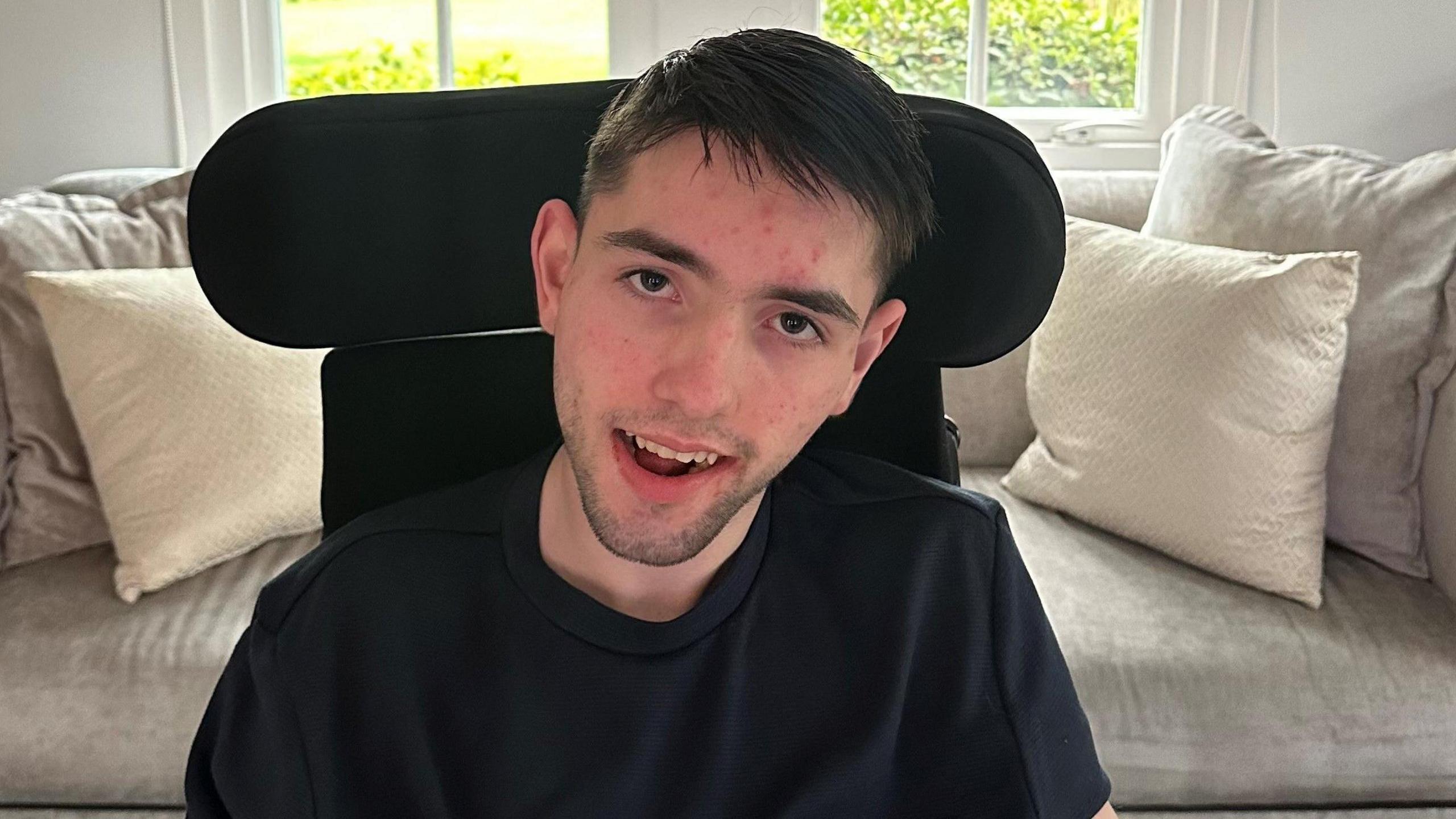
Lewis Syme gets invaluable interaction from his time in college
Corseford's challenges reflect a broader issue in Scotland's education system.
Cuts to college budgets and the closure of adult training centres have left a gap in provision for young people with complex disabilities.
"Families were promised community-based education would replace these services, but that hasn't happened," says Eileen Imlah, from the Educational Institute of Scotland (EIS).
She warns of a "lost generation" of young people unable to reach their potential due to a lack of appropriate options.
Capability Scotland remains hopeful that the Scottish government will secure the college's future.
A Scottish government spokesperson told BBC Scotland News that more than £1m had been provided to support the Corseford pilot.
They said: "The Scottish government continues to work with Capability Scotland to commission an independent evaluation of the pilot, which will allow us to explore a sustainable approach to specialist provision going forward."
For now, families can only wait.
As Sheryl puts it: "These young people deserve better. We need action, and we need it now."
Related topics
- Published9 February 2023
